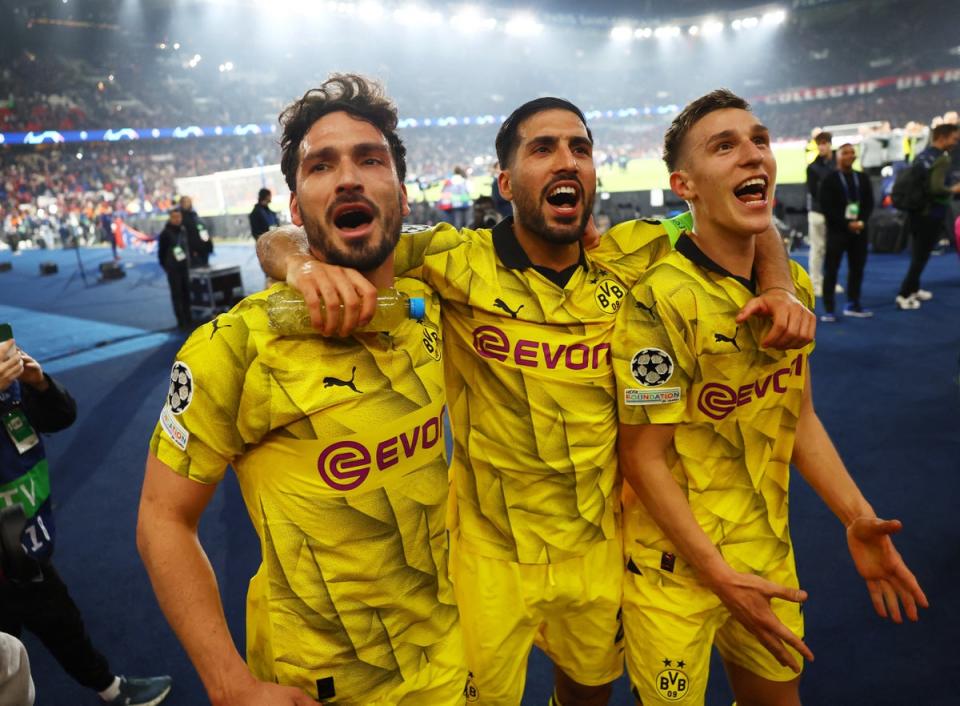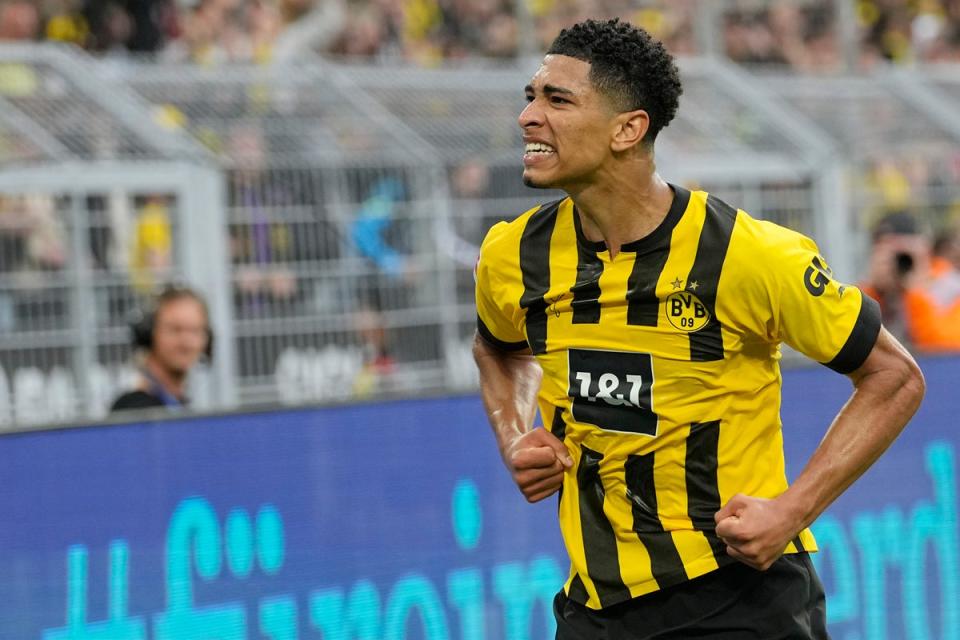In January, with Borussia Dortmund only hoping to reach the quarter-finals of the Champions League rather than the final, they looked to strengthen their season by signing a string of young English players. You can imagine the profile, which has always consisted of emerging talent with great growth potential: the equivalent of a Jadon Sancho from 2017. Chelsea’s selection was of particular importance.
In other words: vintage signings from Dortmund. Only the pitch that was successfully made to Jude Bellingham in 2020 did not work this time. Dortmund’s offer to give younger players more playing time for top players is no longer that attractive. The evolution of both the transfer market and football tactics has led to clubs such as Manchester City and – yes – Real Madrid specifically targeting that player profile. The ubiquity of pressure, meanwhile, has meant that even clubs at lower levels need more of their younger talent to perform.
In short, Dortmund has lost its unique selling point. The world around them has changed. This now forces Dortmund to change, a step that many within the club believe has been overdue for too long.
A new club hierarchy is charged with defining a new identity. What makes this return to a Champions League final all the more unlikely is that there is a divide running through the entire institution. Dortmund’s worst team in a decade has reached the highest possible stage. A club that always thought about the future is finally having a moment in the present again, but amid widespread debate about what comes next. They have gone from one of the youngest teams in the Champions League to one of the oldest. They don’t even penetrate like they used to.
And yet one core element of the club’s modern identity has not changed. Dortmund are clear underdogs going into this Champions League final looking to defy bigger powers once again. They have already been cast as saviors of the competition, in the sense of being fan-owned, but they have already made new money in Qatar’s Paris Saint-Germain and will next face the old European establishment in Real Madrid. The Champions League could certainly use something different. No one with an annual turnover of less than 460 million euros has won the Champions League since 2013, and that was when Bayern Munich defeated Dortmund, with such low figures due to inflation. Dortmund’s turnover last season was €420 million.
Looked at from that perspective, it should almost be an absurdity that they could be considered underdogs to this extent. If that’s the case for Dortmund, what does that say for the rest of the match? How narrow is the top of the pyramid? Dortmund has actually been one of the main beneficiaries of that lopsided modern power structure. That was a structure that was directly influenced by their opponents on Saturday.

When Michel Platini was forced to resign as UEFA president in 2016, Real Madrid and Bayern Munich used the power vacuum to implement reforms that saw more money go to clubs for ‘historic’ Champions League performances over a decade. These were essentially ‘football royalty’, anchoring the power of those who regularly took part in the competition. The threat used to take advantage of this was the Super League. As of 2018, in the cycle from when these changes came into effect, the 210 million euros received by Dortmund was more than all but nine clubs. Such financial power was one of the few reasons why they were invited to the Super League themselves.
Dortmund immediately rejected that invitation, knowing that their fans would never agree to that. In the same vein, its adherents recognize how such riches have become a curse. That turnover has contributed to figures in which Dortmund have consistently had the 11th or 12th highest turnover in Europe since 2012, when Jurgen Klopp’s first big team began this era. The only season since then to deviate from that status was 2021-2022, when they finished 13th. It’s striking how consistent it has been.
While that may be a situation that would be desirable for all but about twelve clubs in the entire game, it has led directly to this strange standstill.
Dortmund became so entrenched as a club that they stagnated. Because they were always the twelfth club in Europe, they were always the second team in Germany. Although Dortmund were rich, they would only become half as rich as Bayern Munich. This meant they had to adapt accordingly, specifically targeting this younger player profile. The idea was that they would eventually grow back into a formidable team, but frequent big sales consistently worked against that. Dortmund were looking at so many investments for the future that they stopped playing for the time being.


It became so difficult to win that they institutionalized not winning. They weren’t expected to win the Bundesliga, so they really stopped looking for it. Some believe that this absence of a truly demanding mentality was reflected in moments like the end of the 2022-2023 season, when Edin Terzic’s side somehow lost the title on the final day. There is certainly a widespread view at the club that they were far too comfortable finishing second and just reaching the Champions League every season. This made them great beneficiaries of the modern system, but also great victims, left in this strange purgatory. Complacency eventually led to complications, as often happens. The policy of outgoing CEO Hans-Joachim Watzke lost its way.
That’s why now, at the end of this era, there is this symbolism about reaching a third Champions League final in their history.
No longer able to sign the next Bellingham or Erling Haaland, Dortmund have instead been forced to take different paths. There is a much greater pragmatism in their business, as evidenced by the signings of players such as Niclas Fullkrug and Marcel Sabitzer.
Dortmund have similarly opted for 2024 Sancho over his 2017 equivalent. Their squad now resembles something out of the early 2010s Serie A, where top clubs resorted to compromises or players available on loan or for free. The recent hiring has seen the team’s average age skyrocket, from 26 last season to 28 this season. That is a significant increase compared to the peak of the previous era in 2012, when Klopp had the youngest team in the Champions League after Ajax.


That continued until last season, when they still had the sixth youngest. Bellingham’s sale to Saturday’s opponents highlighted that, but it could well represent the future for many recent buy-young-sell-high clubs. They can no longer operate to the same extent in that space. This is the way the market is developing, potentially leaving a gap for players in their late 20s and early 30s. That adds even more symbolism to how this team has done on so many nights in this Champions League. They didn’t wait for the future. So many of these players have to perform now. They seized the moment, in a way the superior Dortmund teams failed to do. Even Terzic’s tactics play into this, given the way they adapt to the occasion.
Luck played a role. That cannot be ignored. They were on the more forgiving side of the draw. They could have been knocked out by Atletico Madrid. They probably should have been eliminated by Paris Saint-Germain, who missed so many chances.
Now they are expected to lose to Real Madrid. In any case, no one will overlook that. Dortmund is looking at the moment alone for the first time in a long time. It could still go down in history.